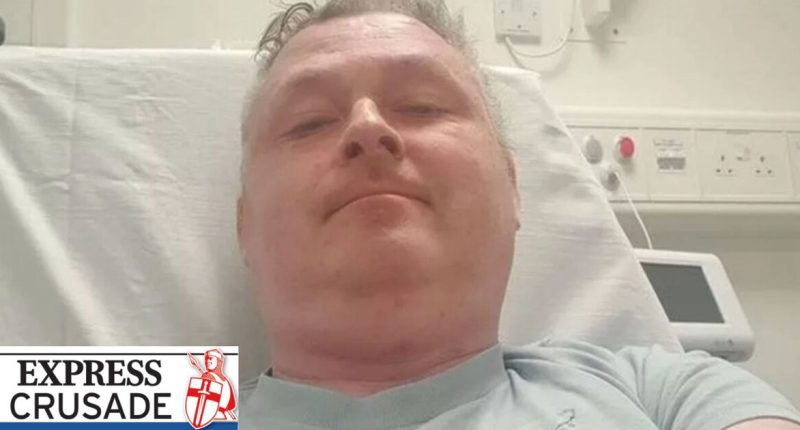Share this @internewscast.com
When you first put a poster in a frame it feels like you are a grown-up. You call it a print and feel sad that the frame cost more than the artwork. It seems a long way from your teenage room when the only thing you would need to put up a poster was some blu-tack. Both of those experiences now feel a world away from me as a cancer patient. I can visualise them but they are both very different from the way I now experience posters, which I see on a regular basis.
At my GP surgery there is a poster about all the possible symptoms of bowel cancer. When I see it I wish I’d seen it months before I was diagnosed with incurable bowel cancer, which has spread to my liver and the lining of my stomach. At my cancer hospital there is a poster about whether I would recommend the services to my friends and family. When I see it I wonder whether I can say: “Maybe some of them but a lot of work is needed to bring things up to scratch.”
The thing they both have in common is they are in places where ill people will see them. They have been positioned so if the message doesn’t get through the first time it will the next time the patient visits the GP surgery or the hospital.
They are only effective because people are stationary when they see them. Instead of rushing around the patients are waiting for appointments so are glancing at their surroundings while scrolling on their phones.
As a lifer at my cancer hospital I know where is good to charge a phone, the shortcuts to different treatment areas and just how similar the flooring in the lifts is to some I was going to choose for my bathroom. I’ve also studied every poster while I’ve been a patient patiently waiting for an appointment.
But one day I saw one I’d never seen before. It had probably been there for years and I think I only saw it because exhaustion from having 12 medical appointments in four days made me slower walking down the corridors than I normally would be.
It was advertising a befriending service run by the hospital’s volunteers. Apparently, according to the words on the A4 sheet, one of the things on offer is a weekly phonecall to help anyone who is feeling lonely while battling cancer.
This sounds like an absolutely fantastic idea and I wonder how many people actually know about it. How many hospital volunteer groups run services like this for patients but they don’t get promoted properly?
My chance glance at the poster was the first I’d heard of such a thing at my hospital and I wonder how many distraught people are missing out because they aren’t told that such a thing exists.
I have the support of a lot of family and friends and my GP so probably would not use such a facility myself. But for many I don’t doubt it could be an absolute lifesaver.
The befriending service is the kind of thing that medical teams should be referring their patients to if they are struggling with any of the aspects of cancer.
But it’s rare for the doctors to know about these kind of mental issues because they just don’t ask. They treat their patients as a list of blood test results instead of who they really are – people with fears and emotions about their uncertain futures.
The Daily Express Cancer Care campaign is calling for this to change. We want medical teams to start FULLY treating their patients by ensuring they get mental health support both during and after their treatment.
You can add your voice to the campaign by signing our petition to ensure everyone with cancer gets the help they deserve.













